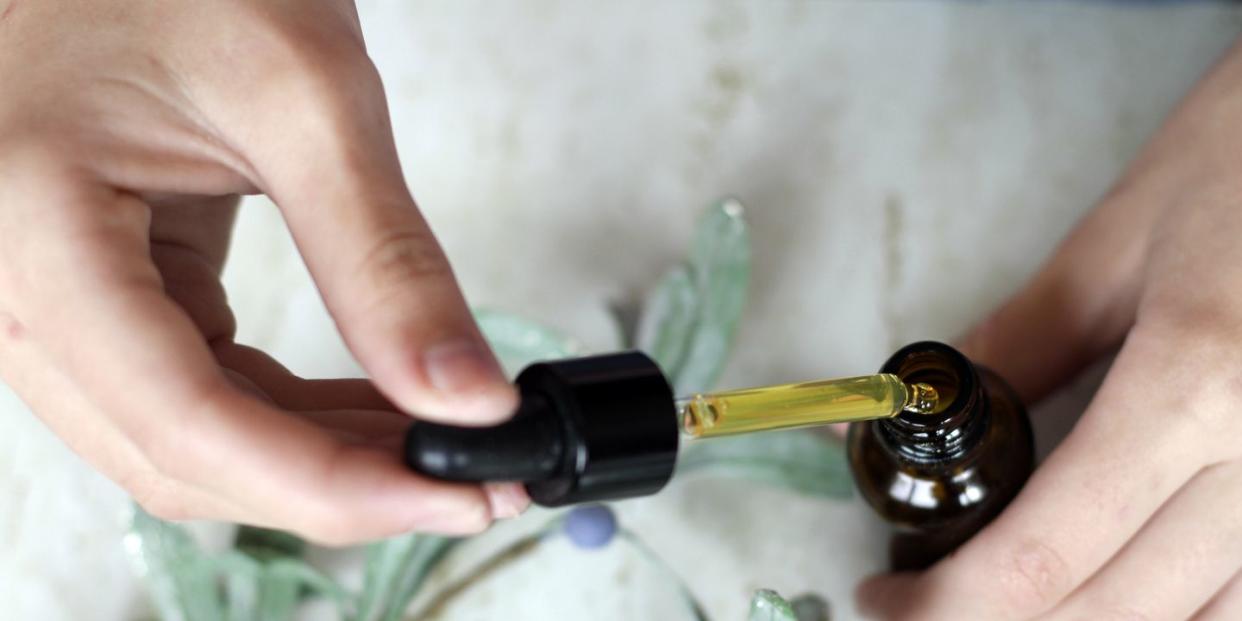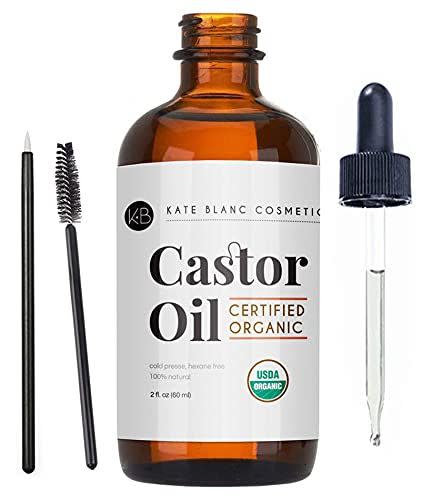Sorry, But Castor Oil Won't Actually Make Your Hair Grow Faster

"Hearst Magazines and Yahoo may earn commission or revenue on some items through the links below."
Castor oil has long been praised in the beauty community for its ability to add extra shine and hydration to locks, though plenty of others have also claimed that the oil can be used to remedy hair thinning and significantly promote faster growth.
Meet Our Experts: Gregorio Ruggeri, trichologist and owner of Salon Ruggeri in New York City, Tiffany Clay, MD, board-certified dermatologist, Philip B., hair expert and founder of Philip B. Haircare
While the latter claim is highly debatable, there are still tons of benefits to using castor oil on your hair thanks to its antimicrobial properties. To understand the benefits of castor oil, we turned to the experts.
What is castor oil? Castor oil is a multi-purpose vegetable oil that's commonly used both cosmetically and medicinally. Some of its uses include moisturizing hair and skin, healing wounds, and treating inflammation.
The Benefits of Castor Oil For Hair
Castor oil is pretty hydrating, and can be used on hair and lashes to moisturize the hair and prevent breakage, says Philip B., founder of Philip B. Haircare. "It also contains fatty acids which nourish the hair follicles," adds board-certified dermatologist, Tiffany Clay, MD.
While there's no real research to suggest that castor oil can directly cause hair growth, Phillip B. says it's possible that castor oil can contribute to the overall health of your hair, which can, in turn, help you retain length.
"Castor oil's ability to fight off bacteria or fungal growth on the skin again ‘may’ help protect your follicles from damage, which can, in fact, keep a healthy scalp and therefore help to promote the growth of healthy hair," he explains. Dr. Clay echoes this.
“It is thought to stimulate hair growth by maintaining hydrated hair with sealed cuticles (the outer layer of the hair follicle, which holds in moisture),” she explains. "Also, because it increases blood flow to the scalp, more nutrients are being delivered to the scalp circulation."
Who Should Use Castor Oil?
Castor oil is safe to use for most people, specifically those with medium, thick, and coarse hair types. According to Gregorio Ruggeri, trichologist and owner of Salon Ruggeri in New York City, the oil can weigh down thin and/or straight hair since it's thicker than most other oils.
How to Use Castor Oil on Your Hair
The first thing you should know about castor oil that is you don’t need to apply a ton of it to see results, so it's okay to use it sparingly. You also don’t need to use castor oil every day, as Ruggeri notes that it's best to be applied on a weekly basis.
“I’d suggest using it on washed and conditioned hair that is still damp; you want to seal that moisture in before styling and apply heat,” Dr. Clay notes. Then, apply a small amount of castor oil to your hair by rubbing it together in your hands and distributing it evenly over the ends of your hair. Adding it to your ends will help lock in hydration and shine that you might otherwise be missing.

Castor Oil (2oz), USDA Certified Organic, 100% Pure, Cold Pressed, Hexane Free by Kate Blanc Cosmetics. Stimulate Growth for Eyelashes, Eyebrows, Hair. Skin Moisturizer & Hair Treatment Starter Kit
amazon.com
$9.99
amazon.comBoth Ruggeri and Dr. Clay agree that it’s a good idea to wash the oil out—not doing this can make your strands feel excessively greasy and heavy, and it can also make styling your hair more challenging. “Finish off with a clarifying shampoo and nourishing conditioner,” Ruggeri says.
Though it may seem counterintuitive, Dr. Clay recommends avoiding the scalp because “it may lead to occlusion of the scalp pores and hair follicles which could lead to inflammation, dandruff, and itching,” she says.
You Might Also Like

